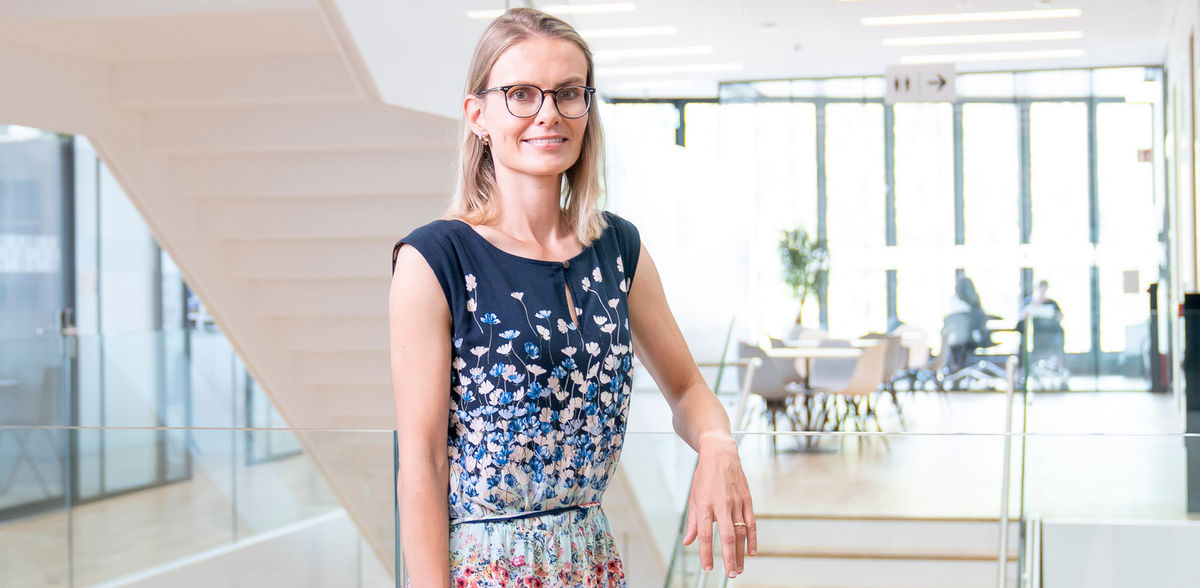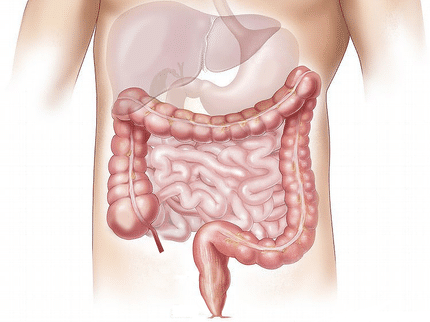Do bacteria make you fat?
Prizewinner Maria Luisa Balmer is looking for answers
Advertisement
The winner of this year’s Marie Heim-Vögtlin Prize is Maria Luisa Balmer. The SNSF is awarding her the prize for her research into intestinal bacteria and their role in the development of diabetes and morbid obesity.
In Switzerland, approximately one child in six is overweight, and the number is increasing. This is concerning, given that being severely overweight increases the risk of cardiovascular disease, cancer and diabetes. “We have known for some time that intestinal flora play a key role in the development of obesity,” says Maria Luisa Balmer, a specialist in Internal Medicine at Inselspital and head of a research group at the University of Bern. But the links are complex. In her research, Balmer is investigating the interactions between intestinal bacteria, their metabolic products and the immune system.
In recognition of her research work, she has been awarded the Marie Heim-Vögtlin Prize 2023 by the Swiss National Science Foundation (SNSF). The award ceremony will take place at the University of Bern on 21 November.
Identified: fattening bacteria
It is already known that morbidly obese people generally have different intestinal flora from slim, healthy people. Certain types of bacteria proliferate very vigorously, suppressing others as they do so. But what does that mean? And is the change in intestinal flora a cause or consequence of obesity? One of the researcher’s approaches to investigating these questions involves germ-free mice, which the University of Bern breeds in a facility that is unique in the world. “We can use these animals to investigate what effect individual bacterial species have and elucidate cause and effect relationships,” Balmer explains.
Using this approach, her team was actually able to identify five bacterial species that increase the susceptibility of the mice to obesity. As a next step, the team intends to investigate how this comes about – for example, which bacterial metabolic products contribute to the fattening effect, and what impact they have on the immune system.
In a preceding study, Balmer had already demonstrated that the metabolic product acetate has a positive effect on immune cells. By doing so, she illustrated the link between diet, intestinal flora and the immune system, because one of the conditions under which acetate is formed is when bacteria in the intestines metabolise dietary fibre of the type contained in vegetables or wholegrain products.
Promoting health with chewing gum
Balmer’s research group is currently investigating the effect of dietary fibre in more detail in a clinical study involving over 100 severely obese children. The team has developed a chewing gum that has been enriched with water-soluble dietary fibre. And the best thing about this completely new idea is that the children do not realise the “FibreGum” is medicine. Like normal chewing gum, it tastes of mint. It is intended to promote intestinal metabolism in children almost without them noticing and at the same time help them reduce snacking on other sweets. “Low-threshold treatments are particularly important for children,” says Balmer. She hopes the study will demonstrate whether the nutritional fibre consumed with the FibreGum does actually improve intestinal flora, and ultimately whether it helps the children lose weight more easily.
Career snapshots: "We need a change of ideas"
Maria Luisa Balmer’s research already won her an SNSF Eccellenza Professorial Fellowship in 2020. She says she regards winning the Marie Heim-Vögtlin Prize as a huge accolade. But she also sees the prize as an opportunity to gain visibility as a researcher who is a doctor and mother as well. “As far as that’s concerned, our whole society needs an urgent rethink,” she emphasises. “We need to update our traditional role models for group leaders at higher education institutions because the bar for couples with jobs is unrealistically high for both mothers and fathers. I feel it is important to demonstrate that you can have a family or hobbies that demand a lot of time and still conduct cutting-edge research and be successful if you have people around you to support you.”
Original publication
J Lötscher, M L Balmer; "Sensing between reactions – how the metabolic microenvironment shapes immunity"; Clinical and Experimental Immunology, Volume 197, 2019-3-25
Maria L. Balmer et al.; "Memory CD8+ T Cells Balance Pro- and Anti-inflammatory Activity by Reprogramming Cellular Acetate Handling at Sites of Infection"; Cell Metabolism, Volume 32




























































